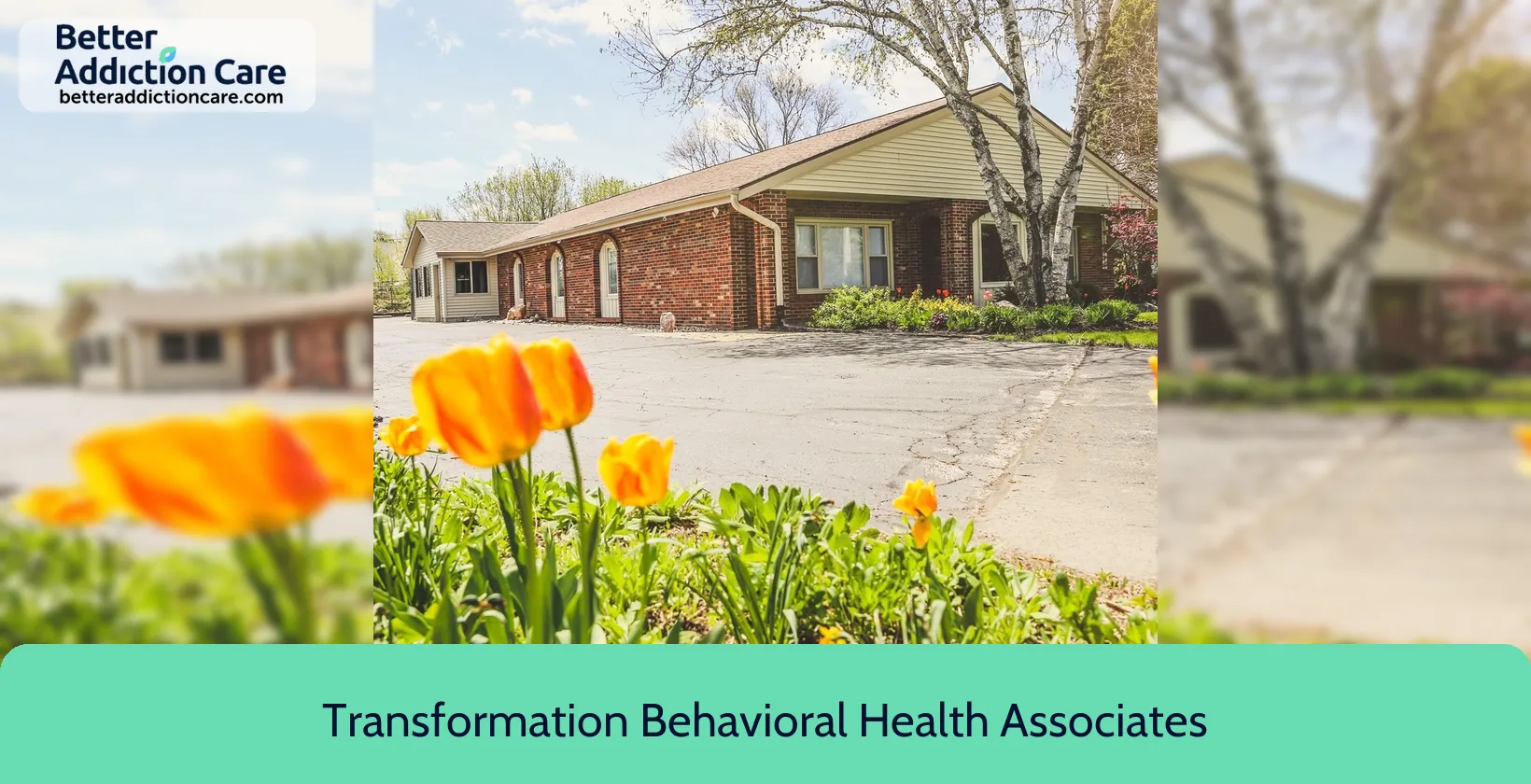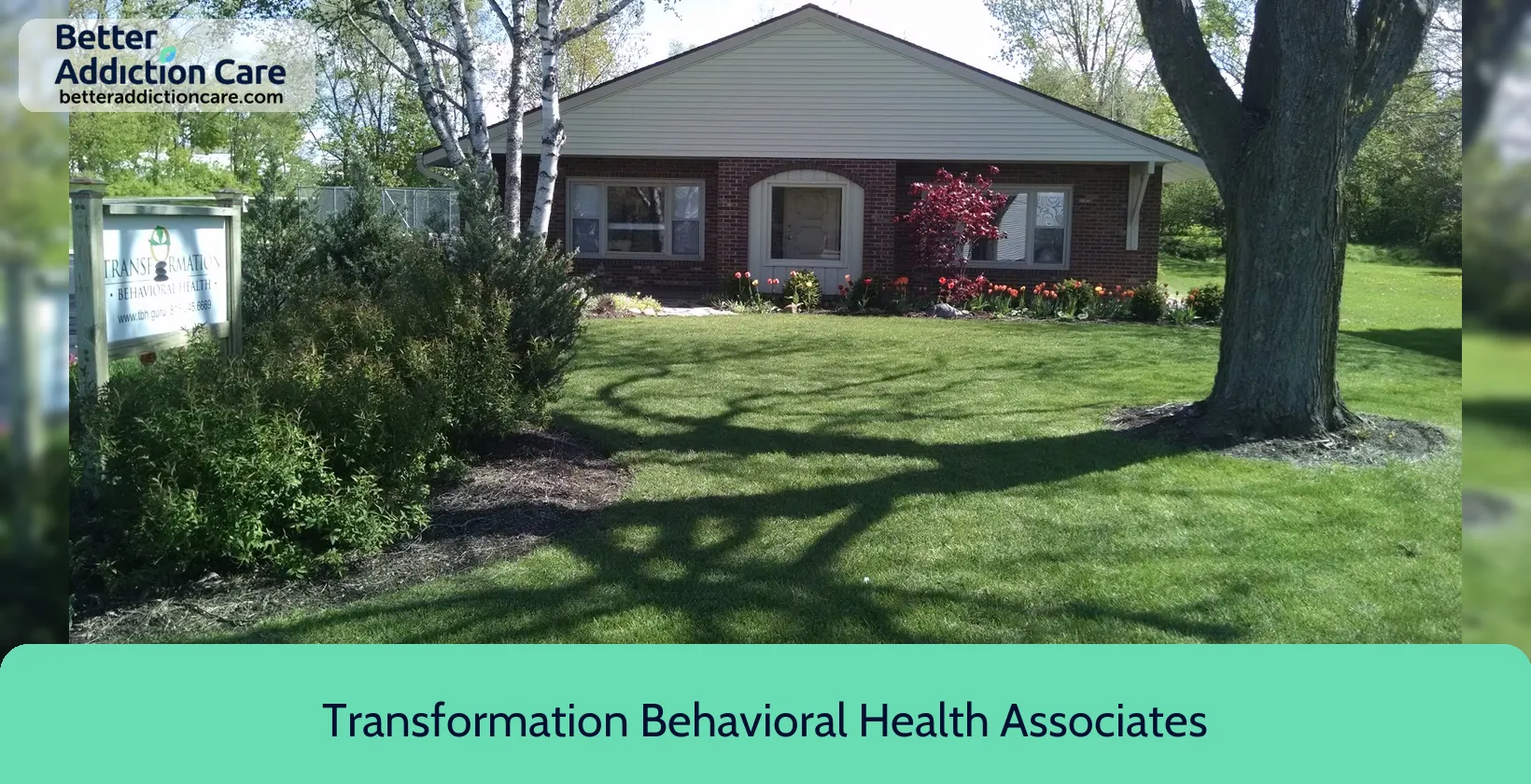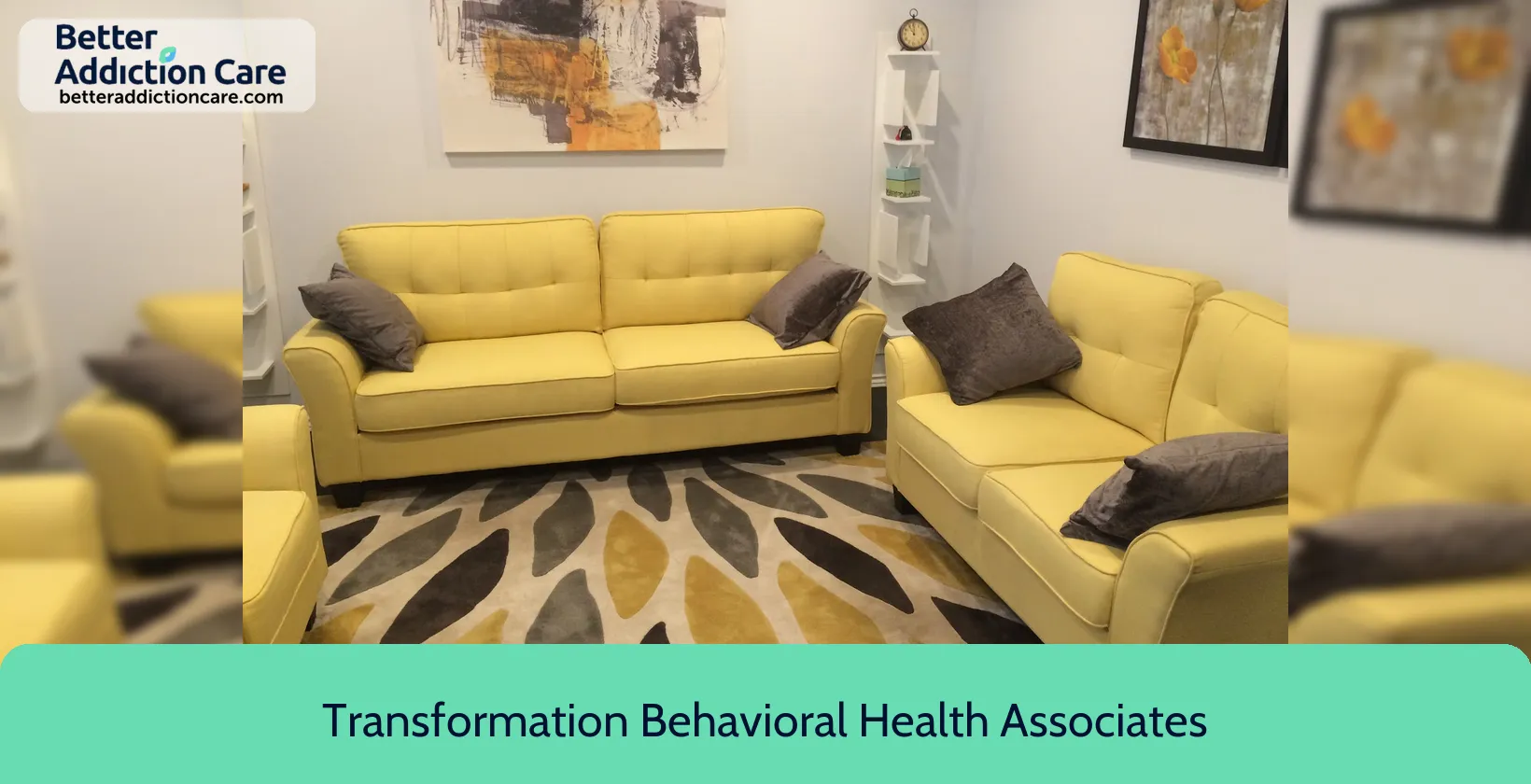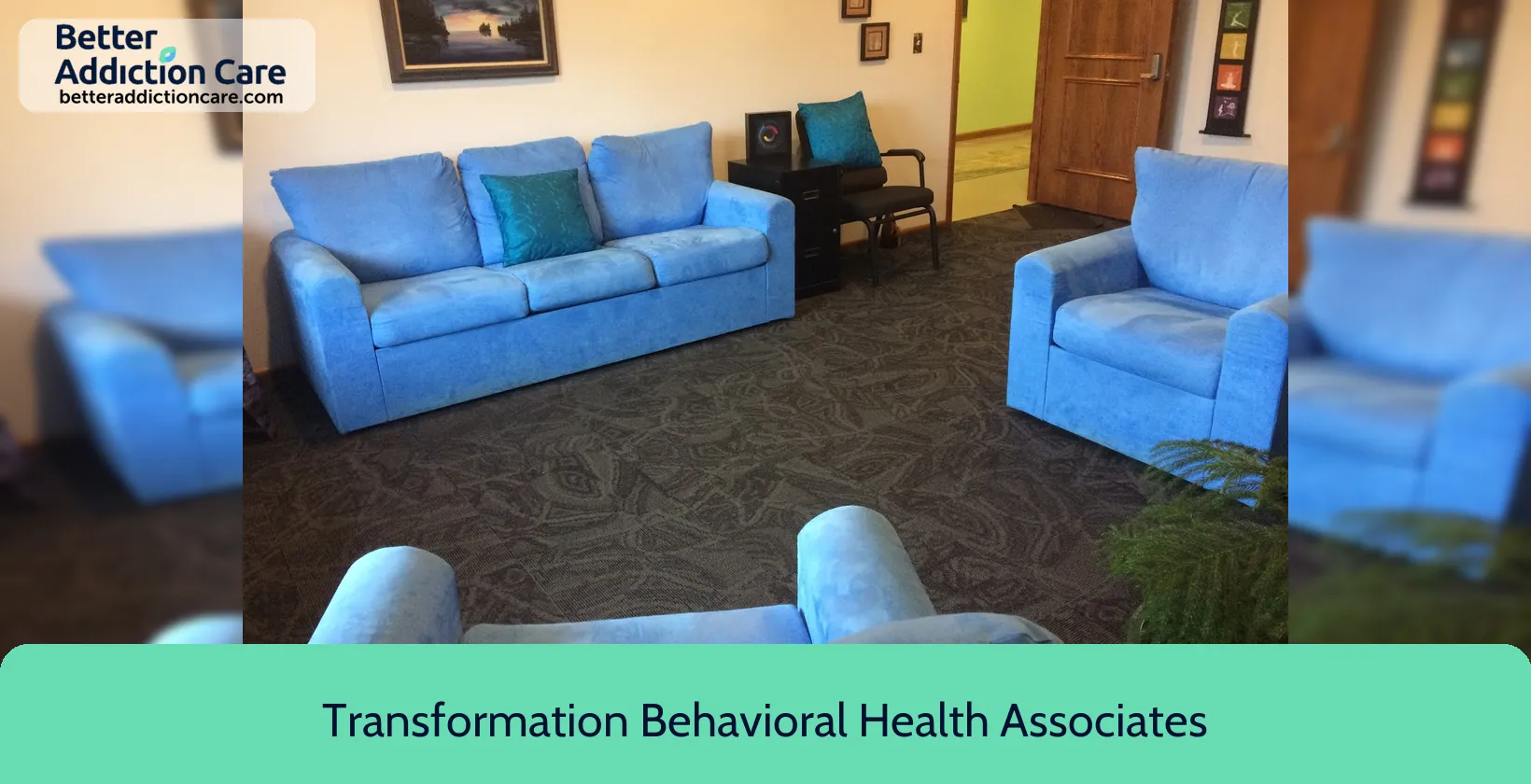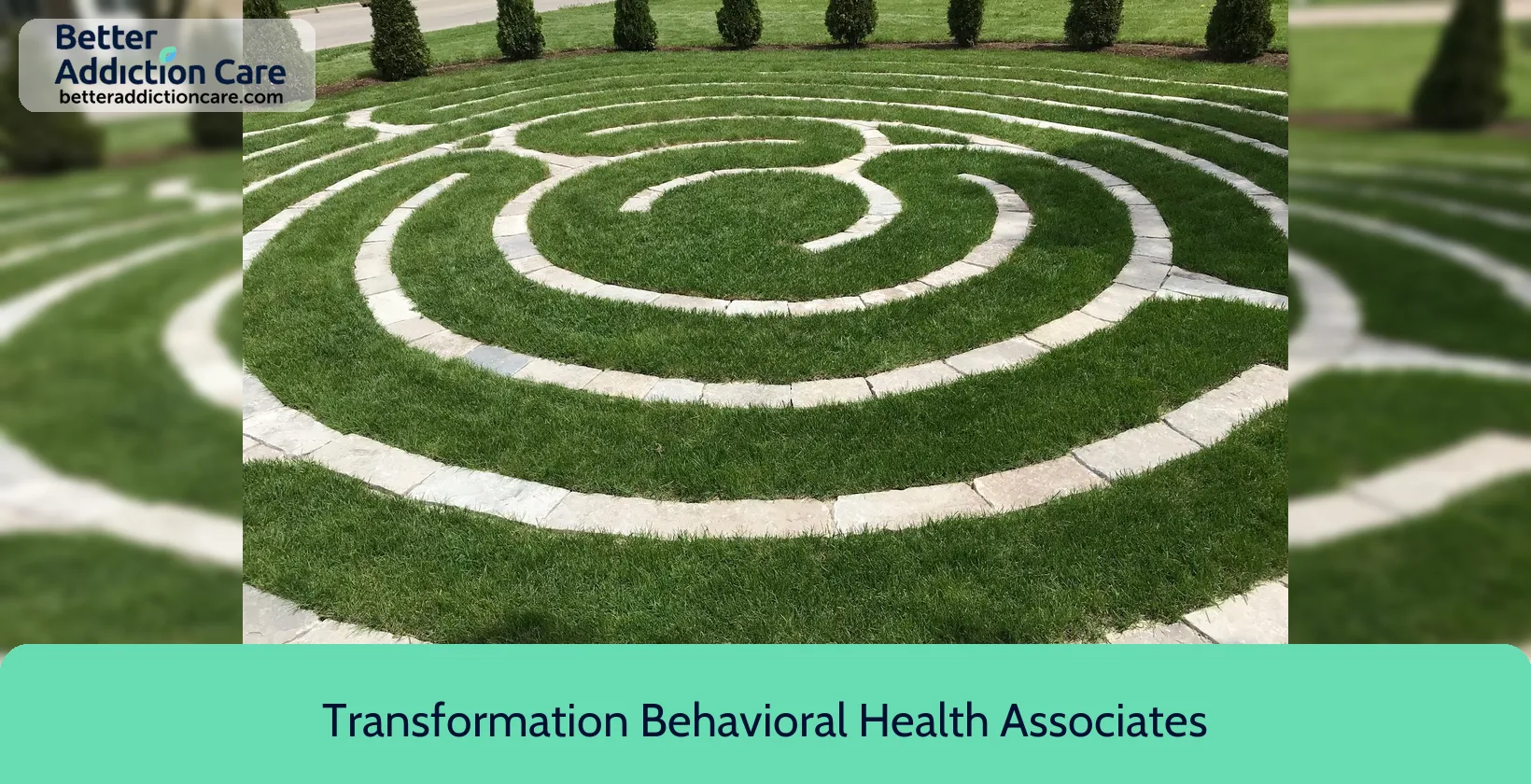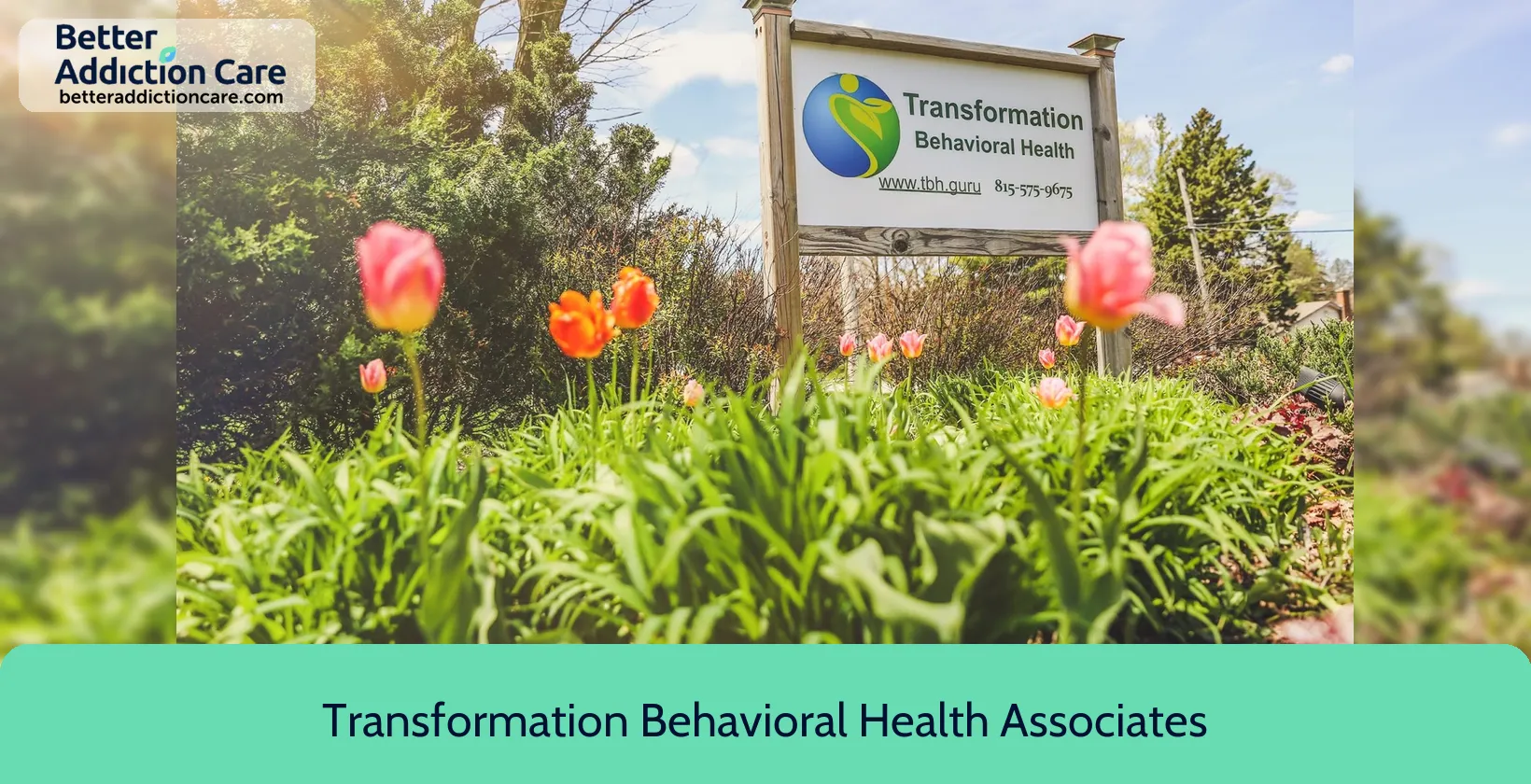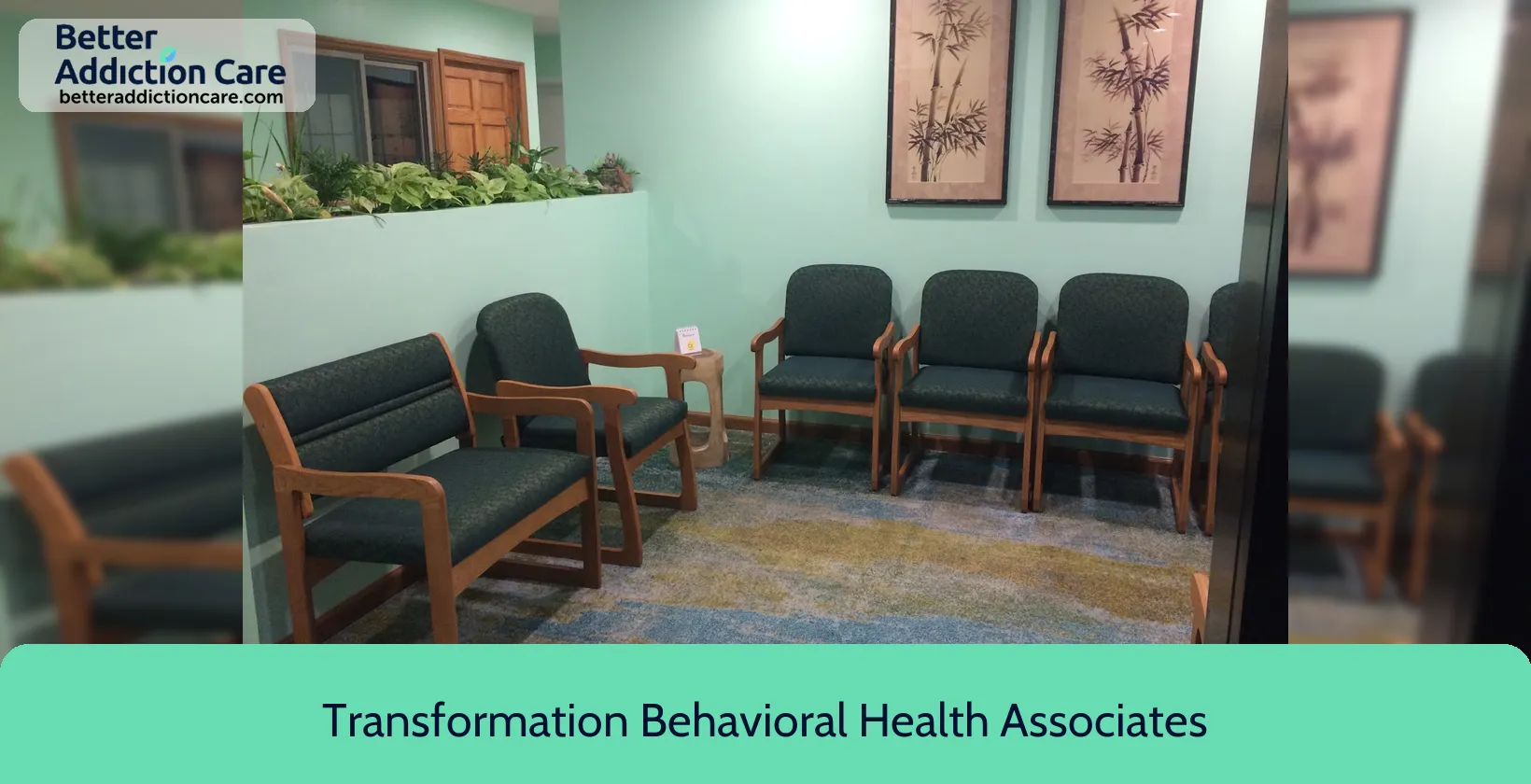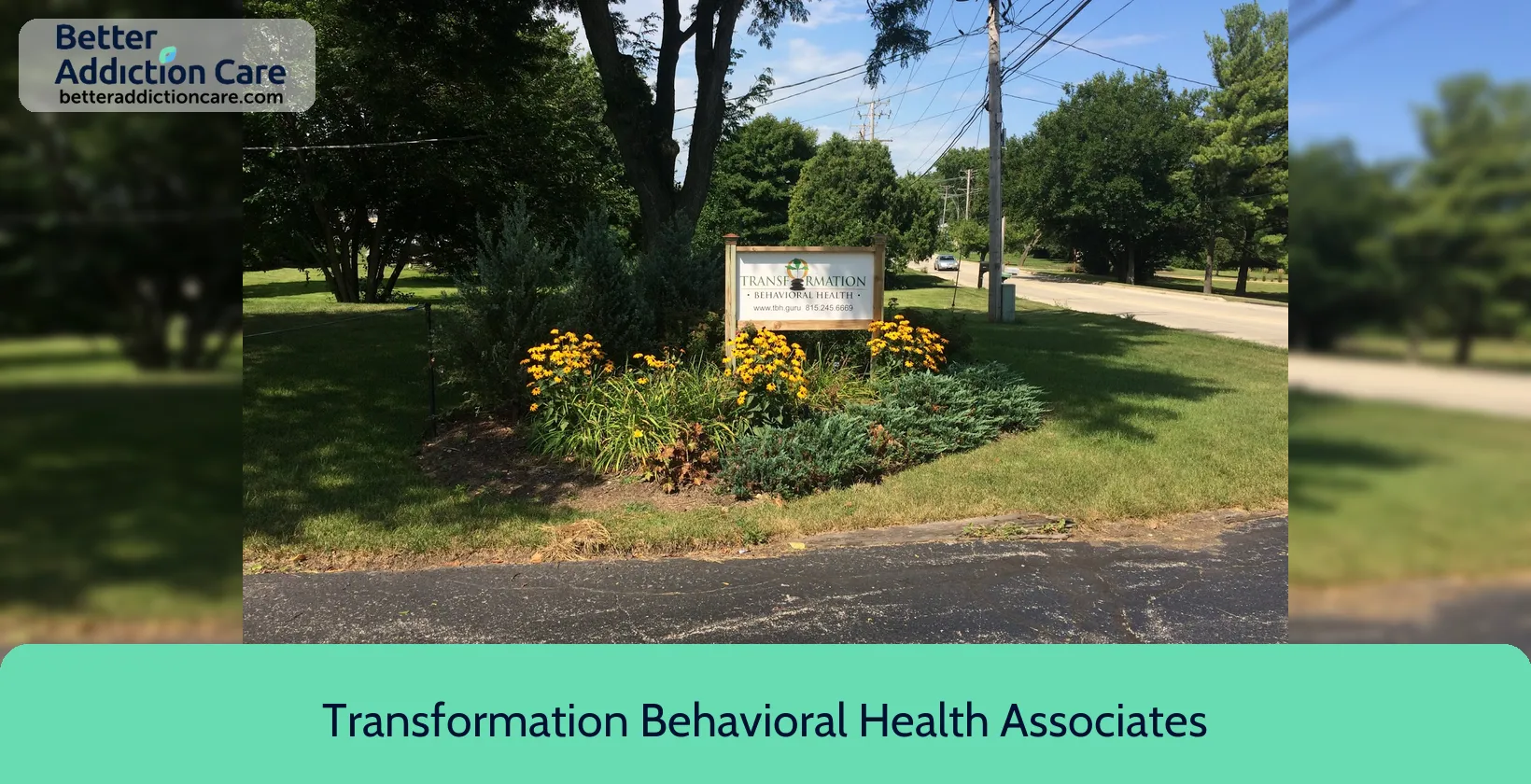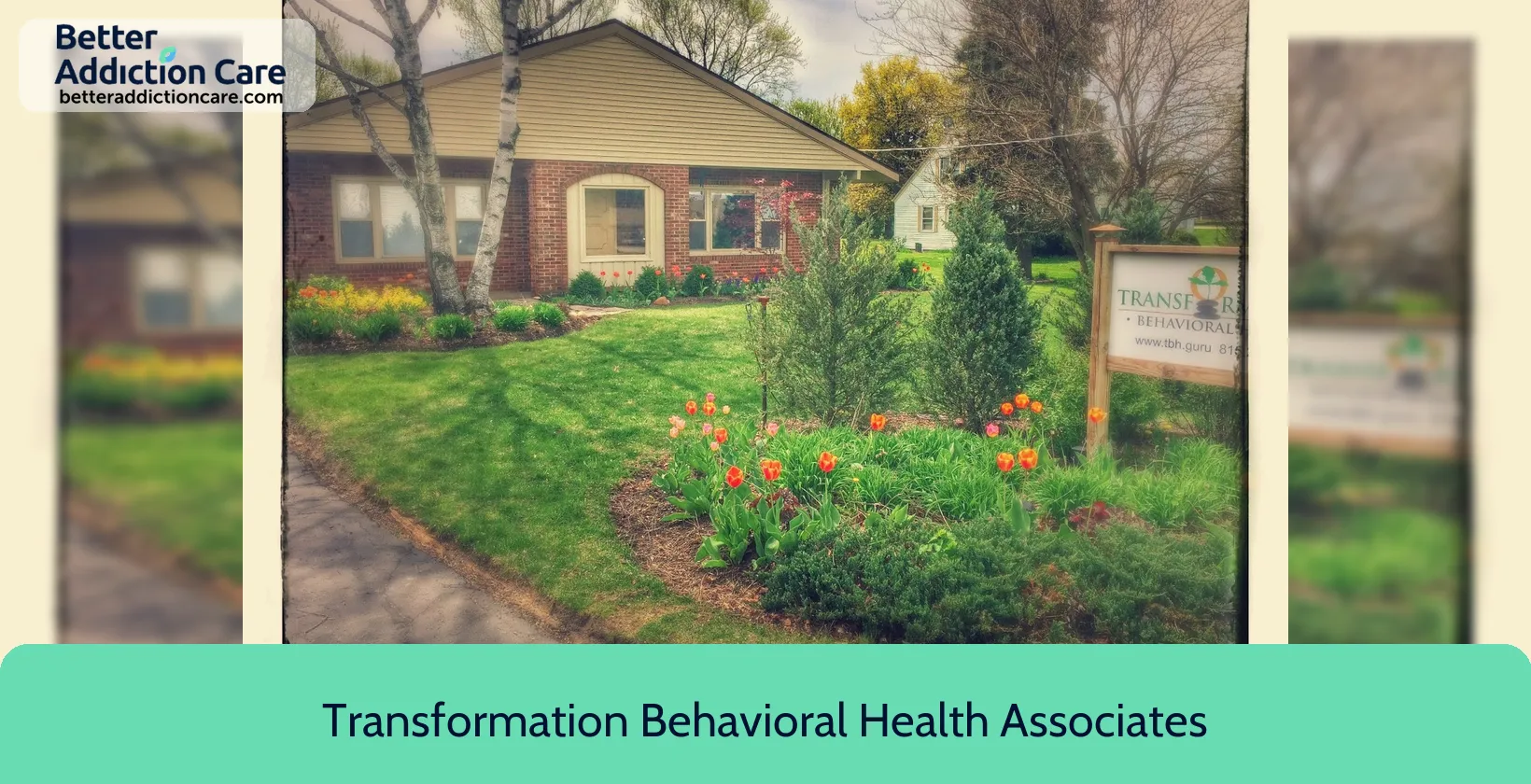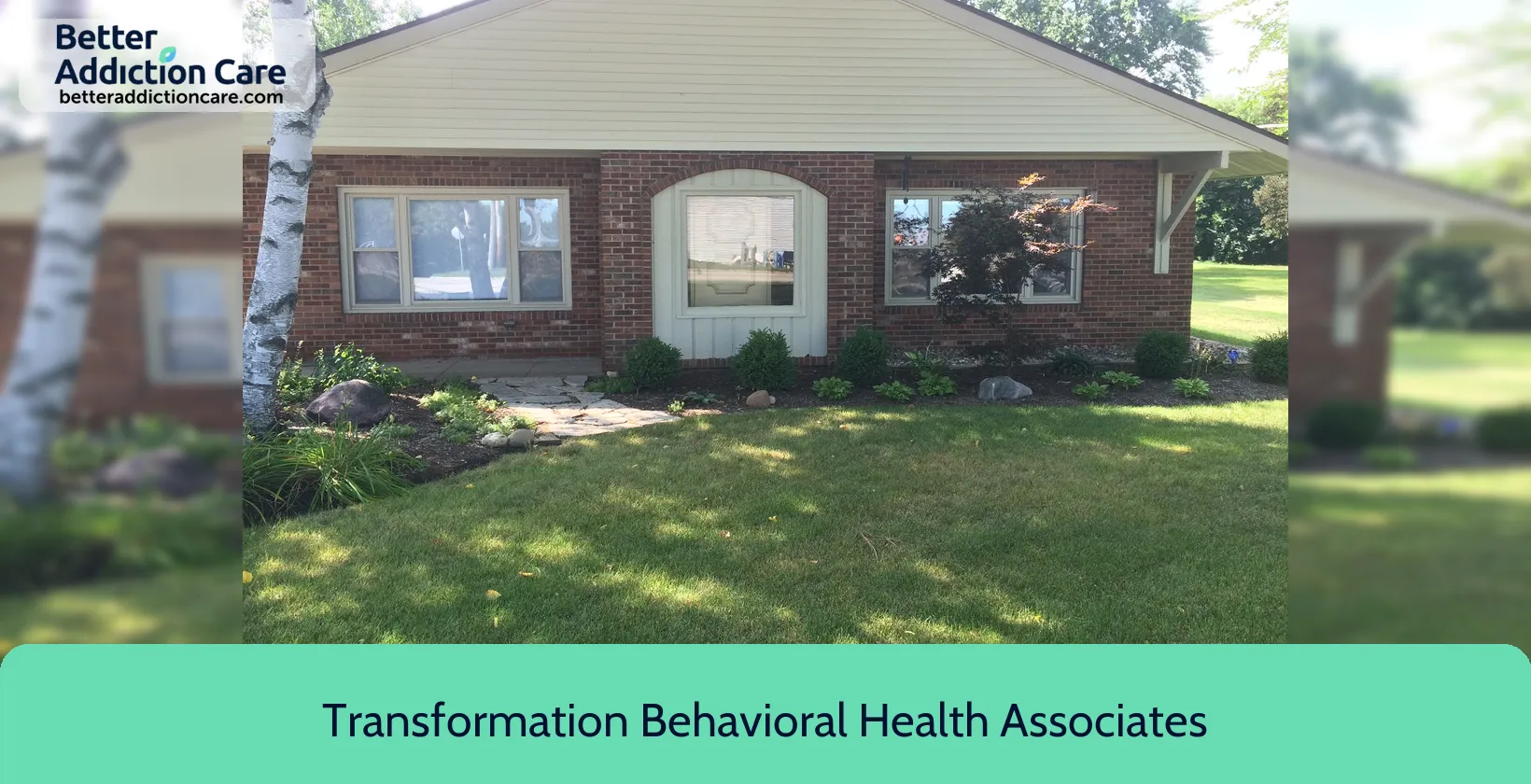Overview
Transformation Behavioral Health Associates is an substance abuse treatment center that provides outpatient treatment for men and women from 16+ years of age. As part of their special programs, Transformation Behavioral Health Associates treats clients who have experienced trauma. To help patients achieve sobriety, Transformation Behavioral Health Associates provides intake assessments. Afterward, patients receive cognitive behavioral therapy, telemedicine/telehealth therapy, and substance use disorder counseling during treatment. Transformation Behavioral Health Associates is located in Woodstock, Illinois, providing treatment for people in McHenry County, accepting cash or self-payment, medicare, and private health insurance.
Transformation Behavioral Health Associates at a Glance
Payment Options
- Cash or self-payment
- Medicare
- Private health insurance
- Federal military insurance (e.g., TRICARE)
Assessments
- Screening for tobacco use
- Comprehensive mental health assessment
- Comprehensive substance use assessment
- Screening for mental disorders
- Screening for substance use
Age Groups
- Children/adolescents
Ancillary Services
- Case management service
- Suicide prevention services
- Mental health services
- Social skills development
Highlights About Transformation Behavioral Health Associates
6.96/10
With an overall rating of 6.96/10, this facility has following balanced range of services. Alcohol Rehabilitation: 8.00/10, Drug Rehab and Detox: 6.00/10, Insurance and Payments: 6.00/10, Treatment Options: 7.82/10.-
Alcohol Rehabilitation 8.00
-
Treatment Options 7.82
-
Drug Rehab and Detox 6.00
-
Insurance and Payments 6.00
Treatment At Transformation Behavioral Health Associates
Treatment Conditions
- Alcoholism
- Substance use treatment
Care Levels
- Outpatient
- Regular outpatient treatment
Treatment Modalities
- Cognitive behavioral therapy
- Telemedicine/telehealth therapy
- Substance use disorder counseling
- Trauma-related counseling
- Smoking/vaping/tobacco cessation counseling
Ancillary Services
Special Programs
- Clients who have experienced trauma
Contact Information
Read our Most Recent Article About Drug Addiction
DISCLAIMER: The facility name, logo and brand are the property and registered trademarks of Transformation Behavioral Health Associates, and are being used for identification and informational purposes only. Use of these names, logos and brands shall not imply endorsement. BetterAddictionCare.com is not affiliated with or sponsored by Transformation Behavioral Health Associates.
